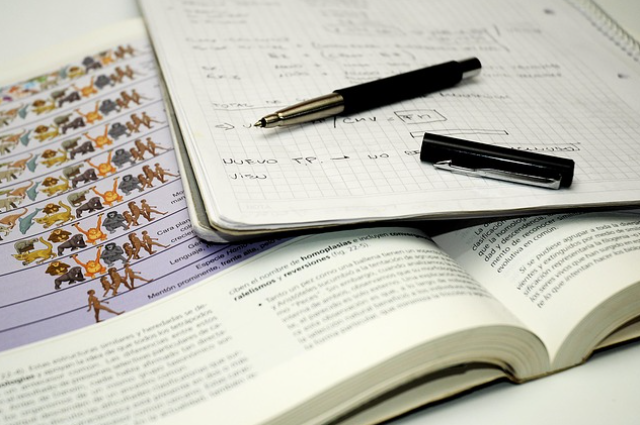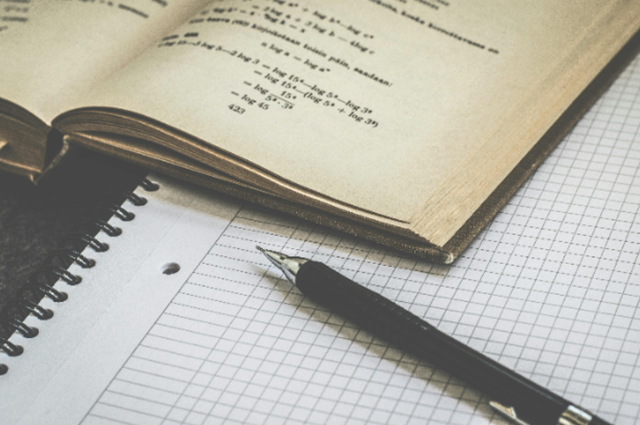
There's a sea of mixed emotions flowing through a student's mind while preparing for an examination. I am confident about this because that's what I went through.
But it took me a while to realize that exams are not so bad and not to be feared. There are several easy ways to study for an exam without stress and strain.

So, to help other students overcome the fear of facing exams and help them prepare, I decided to write this article about how to prepare for an exam.
This would be useful for many students about to write their exams. You can follow these simple tips for exam preparation for any type of exam, be it a normal test, board exam, final exam, etc.
How to prepare for an exam without stress
These are some of the best and simplest tips for exam preparation. Follow these steps to study and attend the exams without fear or nervousness.
I write this article not from research but from experience, so I have included some of my own experiences as examples. Believe it or not, I have been in almost all the situations that I am going to explain below.
1. A good revision timetable
Even if a student studies everything, they must revise what they have learned; otherwise, there is a good chance of forgetting it or confusing it with other information.
To make it clear, why revision is necessary, I will share my own experience. I was once confused during my science exam about using the term perpendicular or parallel. This was in a scientific definition and since I did not revise the answer, I got confused. I know I got the answer wrong because I was the only one who wrote perpendicular while the correct answer was parallel and my science teacher mentioned it specifically in my class.
So to avoid this sufficient revision is necessary. Prepare a timetable that you can follow, and plan everything correctly, according to the exam and your capacity. There's no need to put too much pressure on yourself.
2. Gather notes
Notes are very important, without them there is no point in studying or even attending an exam. So gather all the necessary notes and learn little by little whenever you get time.

Photo by cotton-bro studio
Keep your notes close to you and safe so that you can learn whenever you need. Confirm in advance that your notes are suitable and can be followed for examination.
There are some cases where you may be following the wrong material.
3. Mark all important questions
Whenever you come across important questions mark them in your notes. It will be really helpful during revision.
If you did not cover all the topics, reading just the important answers may sometimes help. Remember "sometimes", not every time.
4. Understand everything. Don’t memorize
You don’t easily forget what you understand. Ask for help from friends or teachers. Memorizing a topic will never help.
It’s easy to forget the things you memorize, but once you understand, they will never be forgotten. When you understand a concept, you can explain it in your own words.
Sometimes, certain questions are twisted and this is what we call our own questions or twisted questions. Instead of asking the same questions from your notes or previous questions papers, some questions will be changed slightly so that you can't write what you memorized.
Again, let me give my own experience as an example. Now, this happened to me in my math exam. I hate maths, so I never really study it. I once memorized a sum where they give you some number and you have to find the 'x' value. Unfortunately, this time they gave the 'x' value and asked me to find the other values. This is not just in math, it can happen in any subject.
5. There is nothing wrong with taking a break
If you go on reading and studying without taking breaks, it will also cause stress. Whenever you feel like resting or taking a break, then do so.
There's nothing wrong with that.
6. Move on after the exam
After finishing your exams do not think too hard about the wrong answers you have written. There is no way you can change it now.
Thinking about it will only lead to more stress.

Photo by Photo By: Kaboompics.com
So move on and prepare for the next exam.
7. Stick to the study method that works best for you
Not everyone can study in a group nor everyone can study in a quiet place. So follow what you feel comfortable and efficient.
8. Collect and look at past question papers
If you can or if available, collect and look at past question papers.
Because, in addition to learning the important and repeated questions, you will also know about the question pattern.
9. Be prepared with all important supplies for the exam
Next, before going into the exam hall, make sure you have all the necessary things like a pen, scale, rubber, pencil, hall ticket, ID card, calculator, etc.
10. Always have your breakfast
It is the first and most important meal of the day.
If you skip breakfast, you may feel weak and unwell during the exam.
11. Read all the exam instructions
Make sure you read all the instructions before you go into the exam hall.
Knowing about the Dos and Don’ts in advance will be helpful and you can remain calm.
12. Prepare in advance
Prepare in advance, how long you will be attending a particular question. Such as 30 minutes for the 10 mark, 20 minutes for the 5 mark, etc.
If you do not decide this, you may end up wasting time on small questions and may not be able to attend to other questions.
So it is always good to prepare in advance.
13. Start Preparing early
Another main thing you should do is to prepare early for your exams.
Studying, on the last day, will be a great burden and you will not be able to cover all topics.
Follow the revision plan you prepared. Separate each subject and topic according to the no: of days you have.
14. Get Help
Ask advice from your teachers about the exam.
Learn about the question pattern, important questions, and other tips from the teachers. It will be very useful for your exam.
15. Avoid Distractions
Before exams, do not spend too much time on movies and shows. You will be distracted and cannot focus on learning.
Eventually, you will lose interest in learning and will only give importance to movies.
16. Sleep Well

Get sufficient sleep; if you don’t, you will feel sleepy in the exam hall. A good nap is necessary for all.
Conclusion
So, these are some of the important and basic things you should do while preparing for exams. Remember these tips and follow them. Whatever happens, be calm. Because, when you get nervous the chance of you getting confused or forgetting the answers is high.
Now these are the tips I wanted to share with you, if I had come across this list sooner, who knows, maybe I could've gotten better marks.
Now I need to make sure that my parents don't read this, if they did I know what they would think, (he gives tips to others but he can’t follow any of these.)
Now what do you think about these tips, feel free to share your thoughts, were they good, bad, or helpful. If you have additional tips, add that too in the comments.
All the best!
